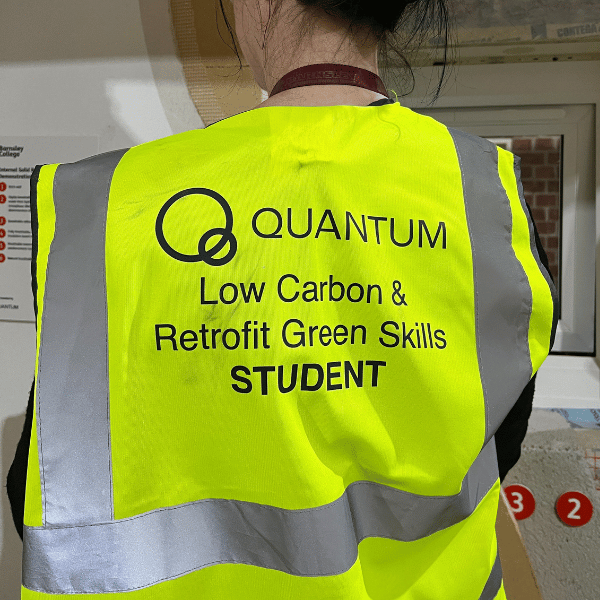Why SMEs can’t ignore sustainable tech
When most SME leaders think about sustainability, their minds often go to the tangible: switching to a renewable energy supplier, reducing packaging, or cutting back on printing. These are all valuable steps, but for many businesses, especially those in the service sector, they barely scratch the surface.
The lion’s share of your carbon footprint often comes from something much closer to home: the laptops, mobiles, and desktops your team uses every single day. We spoke to IT expert Ben Schneider from ITGUYS to understand the hidden impact of our digital tools and the pragmatic steps businesses can take to build a more resilient and sustainable tech strategy.
The hidden carbon cost of ‘new’
The drive for the latest technology comes at a steep environmental price. The manufacturing process for new devices is incredibly resource-intensive, from mining rare earth minerals to the energy consumed in production and shipping.
As Ben Schneider, Founder of ITGUYS explains, “An average laptop, for example, is a third of a ton of carbon. If you replace your device every three years, that’s a ton of carbon over a decade just by buying new.”
Many SMEs have a standard hardware refresh cycle of three years, often driven by leasing agreements or a perception that older tech is unreliable. Multiply that cycle across the UK’s 5.6 million SMEs, and the collective environmental impact is staggering.
But there is a smarter, more sustainable way forward. By choosing remanufactured or refurbished devices, businesses can dramatically reduce their footprint while also unlocking significant financial savings. These devices are not second-best; they are rigorously tested, come with warranties, and are often functionally indistinguishable from new. The only real difference is the price tag and the positive environmental impact.
From ‘cutting costs’ to ‘releasing funds’
It’s easy to view choosing refurbished hardware as simply a cost-saving measure. While the financial benefit is real, its strategic value runs much deeper.
“The most impactful thing an SME can do is buy non-new hardware if you possibly can,” Ben advises. The real prize isn’t just trimming an expense line; it’s about freeing up capital to invest where it matters most: your people.
In today’s economy, pouring ever-increasing funds into shiny new tech or inflated digital marketing budgets is often an unsustainable race to the bottom. Releasing those funds into training, employee wellbeing, or better wages builds a stronger, more resilient, and more engaged team; the true engine of any successful business.
Embracing pragmatism over perfection
A sustainable IT strategy must be realistic. Not every role can run on a remanufactured laptop, and that’s okay. High-intensity users, like graphic designers, video editors, or data analysts, may still need the power of brand-new kit to do their jobs effectively.
“It has to be fit for purpose,” Ben stresses. “Sustainability only works when it’s realistic. Small, attainable chunks, not trying to do everything at once, is the way forward.”
The goal isn't to chase an unachievable ideal of perfection. It’s about making pragmatic, informed choices that move the dial without compromising business performance. It’s about asking, "Do we really need new for this role?" before making a purchase.
Cybersecurity: The silent sustainability enabler
All the positive impact you create can be undone in an instant if your business can’t operate. “If you get hacked, you can’t do business,” warns Ben. “Purposeful businesses must take cybersecurity as seriously as their green supply chains.”
Cybersecurity is too often overlooked in sustainability conversations, but it is a critical component of governance and resilience. A single attack can wipe out your operations, damage your reputation, and put your clients at risk. Just as you scrutinise your physical supply chain for environmental risks, you must apply the same rigour to your digital supply chain. A hack on your business could become a backdoor into your clients' systems, making you a liability.
AI: Part of the problem, part of the Solution
Artificial Intelligence presents a classic sustainability dilemma. On one hand, it is an incredible efficiency engine, capable of automating repetitive tasks and freeing up human talent for higher-value work. On the other hand, the enormous energy demands of the data centres that power AI, coupled with its potential to displace jobs, are significant concerns.
We are in the eye of the storm. The opportunity for SMEs is to use AI mindfully, not as a replacement for people, but as a tool to reduce wasted effort and reinvest the time and cost savings back into the human side of the business.
Challenging the culture of consumption
“We’ve become consumers of technology,” Ben reflects. “We love the new box, the slick packaging. But the real cost isn’t the product; it’s the carbon behind it.”
This isn’t about denying ourselves good tools. It’s about shifting our mindset and recognising that long-term business success doesn’t come from constantly chasing the newest gadget. It comes from optimising what we have, investing in durability, and making intentional decisions.
One small step you can take tomorrow
If you want to make one change that truly matters, start here: stop automatically buying new tech.
Make a conscious choice to procure remanufactured or refurbished devices wherever possible. You’ll save money, cut your carbon emissions, and send a clear signal to your team that sustainability is embedded in every business decision, not just an add-on.
And right behind that, schedule a proper review of your cybersecurity measures. To have a lasting impact, you first need a lasting business. Sustainability isn't about doing everything at once. It's about doing the right things, step by step, to ensure your business thrives today and is ready for tomorrow.
To hear the full, inspiring conversation with Ben, listen to the video episode.
How Profit Impact can help
Integrating sustainable practices into every part of your business, from IT procurement to financial planning, is the key to building long-term value. At Profit Impact, we help you move beyond box-ticking to develop a holistic strategy that drives efficiency, enhances resilience, and strengthens your bottom line.
If you’re an SME leader looking to build a more robust and purposeful business, get in touch to see how we can help you turn your sustainable ambitions into a powerful commercial advantage.




.avif)



.webp)

.webp)



